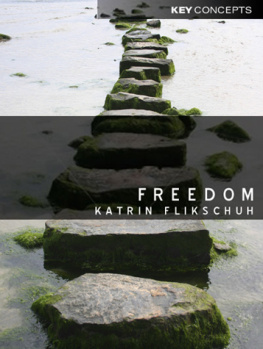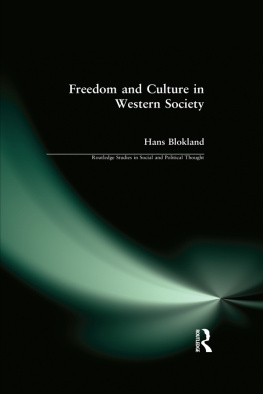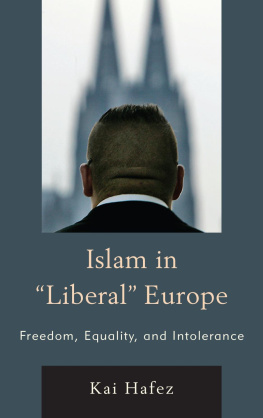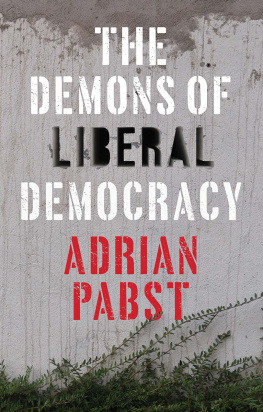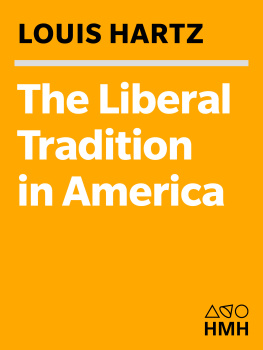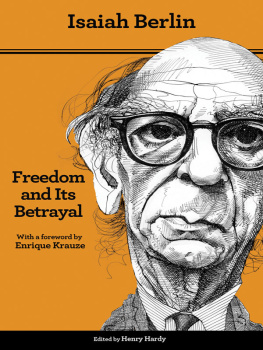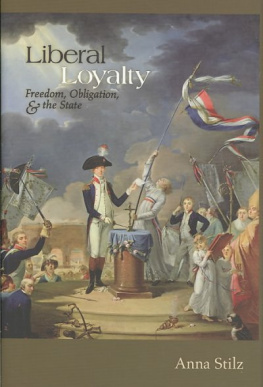Freedom
KEY CONCEPTS
Published
Barbara Adam, Time
Alan Aldridge, Consumption
Alan Aldridge, The Market
Colin Barnes and Geoff Mercer, Disability
Darin Barney, The Network Society
Mildred Blaxter, Health
Harriet Bradley, Gender
Harry Brighouse, Justice
Steve Bruce, Fundamentalism
Margaret Canovan, The People
Alejandro Cols, Empire
Anthony Elliott, Concepts of the Self
Steve Fenton, Ethnicity
Michael Freeman, Human Rights
Russell Hardin, Trust
Fred Inglis, Culture
Jennifer Jackson Preece, Minority Rights
Paul Kelly, Liberalism
Anne Mette Kjr, Governance
Ruth Lister, Poverty
John Mandle, Global Justice
Michael Saward, Democracy
John Scott, Power
Anthony D. Smith, Nationalism
Stuart White, Equality
Freedom
Contemporary Liberal Perspectives
Katrin Flikschuh
polity
Copyright Katrin Flikschuh 2007
The right of Katrin Flikschuh to be identified as Author of this Work has been asserted in accordance with the UK Copyright, Designs and Patents Act 1988.
First published in 2007 by Polity Press
Polity Press
65 Bridge Street
Cambridge CB2 1UR, UK
Polity Press
350 Main Street
Malden, MA 02148, USA
All rights reserved. Except for the quotation of short passages for the purpose of criticism and review, no part of this publication may be reproduced, stored in a retrieval system, or transmitted, in any form or by any means, electronic, mechanical, photocopying, recording or otherwise, without the prior permission of the publisher.
ISBN-13: 978-0-7456-5474-4
A catalogue record for this book is available from the British Library.
Typeset in 10.5 on 12 pt Sabon
by Servis Filmsetting Ltd, Manchester
Printed and bound in India by Replika Press PVT Ltd, Kundli, India
The publisher has used its best endeavours to ensure that the URLs for external websites referred to in this book are correct and active at the time of going to press. However, the publisher has no responsibility for the websites and can make no guarantee that a site will remain live or that the content is or will remain appropriate.
Every effort has been made to trace all copyright holders, but if any have been inadvertently overlooked the publishers will be pleased to include any necessary credits in any subsequent reprint or edition.
For further information on Polity, visit our website: www.polity.co.uk
To Bob Goodin,
whose fault it all is...
Acknowledgements
Apart from my undergraduate students at Essex and particularly my graduate students at the LSE, I would like to thank Janet Coleman, Stephen Houlgate, Paul Kelly, Christian List, Mike Otsuka, Tom Sorell and Leif Wenar, for their contributions, wittingly or otherwise, at various stages in the writing of this book. Many thanks are due to Emma Hutchinson and Louise Knight at Polity Press for their initial patience, later nudgings, and impressive efficiency at crucial stages. My warmest thanks to Diarmuid Costello fellow academic, householder, and sleep-deprived parent for excellent argument throughout: if not about freedom, then about the domestic constraints surrounding the writing of a book on it! My longest-standing debt is to Bob Goodin, my former undergraduate tutor, whose ferociously unforgiving course on Liberal Principles and Public Policy first set me on the way, and whose unwavering support has helped sustain me on the road ever since.
Introduction: Approaching Liberal Freedom
I. The Scope of this Book
This book offers an introduction to the idea of freedom. Its target audience are second- and third-year undergraduate students in political philosophy and political theory though there is always the hope that individual chapters may also be of interest to those further up the academic scale. As an introduction to the topic, this book is in many ways incomplete. In part, it is incomplete in that it considers only the liberal idea of freedom: socialist, Marxist, republican approaches do not get a look-in. Nor does this book touch upon ancient and other pre-modern freedom traditions. Such narrowness in scope may seem odd: is it worth writing a whole book just on liberal freedom? The answer is yes: indeed, one book is far from enough! I cover no more than a small chunk of the fascinating freedom debate in the history of liberal political thought no more than the last fifty years: in truth, the focus is on the last thirty years.
One reason for this restriction in scope is space: one cannot reasonably hope to cover everything in a book this size. Another is competence: if I did know much about Marxist freedom, or about the ancient tradition, I might have written about them. However, I am not trained to do so, and I believe that it is not encouraging when, in writing an introductory book, one finds oneself going off to read up on the material. Introductory books should be written on the basis of a certain amount of accumulated inside understanding. To the degree that I have any of that, I have it in contemporary liberal political philosophy. A third reason is relevance. I do not mean that studying Marxism or the Ancients is irrelevant: far from it. Oddly, though, there seem to be more general introductions to political theory and political philosophy thematizing Marxism and Marxist conceptions of freedom than there are accessible books about liberal freedom, in particular, contemporary liberal freedom. It may seem as though, whilst people think that Marxist freedom is worth studying because now somewhat quixotic, liberal freedom is too close to home, too familiar to bother with. Perhaps this is part of the explanation; however, my sense is that the current neglect is a consequence more of contemporary liberalisms own somewhat skewed preoccupations.
II. Its Structure
When Polity initially approached me about writing an introductory book on freedom I was teaching a second- and third-year core course in contemporary political philosophy at the University of Essex. The course was structured around John Rawlss A Theory of Justice. We did look at other contemporary political thinkers as well, but we tended to treat their work as responses to Rawls. And given Rawlss own focus on liberal justice, the course likewise focused on justice, sidelining other important liberal ideas and principles. I do not think I was the only convenor of an undergraduate course in political philosophy who found herself exposing her students to a systematically structured diet of Rawls and his respondents. I suspect that versions of my course are replicated year in, year out, up and down the country. There is eminently good reason for this: given the immense importance of his work, no undergraduate political philosophy or politics student can afford to walk away with a degree one of the components of which does not include a fairly systematic exposure, at some point, to Rawls. The resulting neglect of other eminent contemporary authors and liberal ideas is nonetheless regrettable. So when the idea of a freedom book was mooted, my first thought was Well, its not going to be on Rawls!
Admittedly, my second thought was that it would be desirable for the proposed book to be broadly continuous with Rawlss legacy that it should not stand apart, like an albatross, from what I conjectured to be the core curriculum concerns of most political philosophy or theory courses in the English-speaking world. I wanted to write a book on the liberal idea of freedom which, whilst it did not take Rawls as its point of departure, nonetheless focused on the contemporary debate. The initial decision to exclude Rawls led me to think about whom to include instead: it led me to favour an author-focused approach over a topic-centred one. Once I had put Rawls to one side, I returned to my various course reading lists, scanning them for alternative philosophical eminences. It quickly became apparent that if I was going to write about contemporary liberal freedom, one thinker I would have to engage with was Hillel Steiner, whose work contains one of the most innovative developments of the subject. But if I included Steiner, I would also need to count in Robert Nozick, who crucially inspired Steiners work. That left me with two libertarian thinkers one extravagantly left-leaning, the other more classically to the right. I needed some counterweights. One obvious candidate was Ronald Dworkin, whose liberal egalitarian outlook could help make up, to some extent, for the exclusion of Rawls. But having paired Steiner with Nozick, who should I pair Dworkin with? I considered Amartya Sen, whose developmental perspective on freedom takes him interestingly beyond the conceptual confines of Western liberal societies. However, Tom Sorell rightly impressed upon me the indispensability of including Joseph Raz in any book on contemporary conceptions of liberal freedom: so I ended up replacing Sens capabilities approach with Razs liberal perfectionism.
Next page
